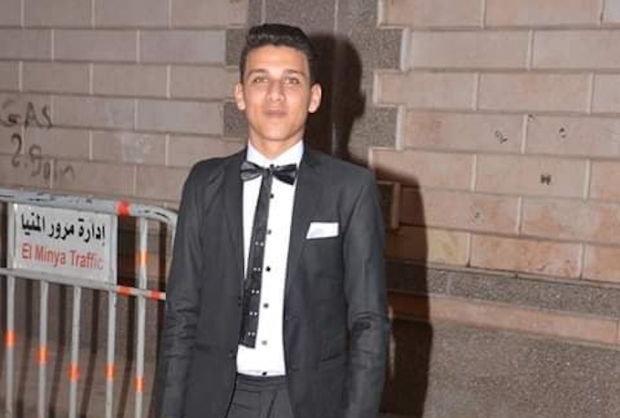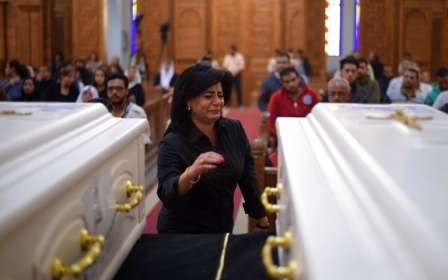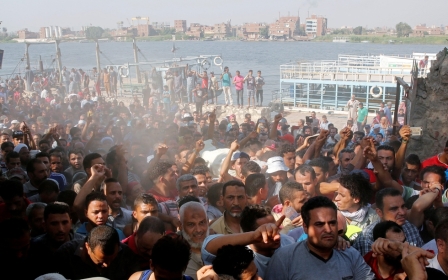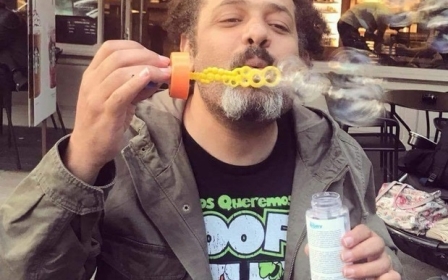'Minya-stan': Egypt's Copts in anguish after policeman turns killer
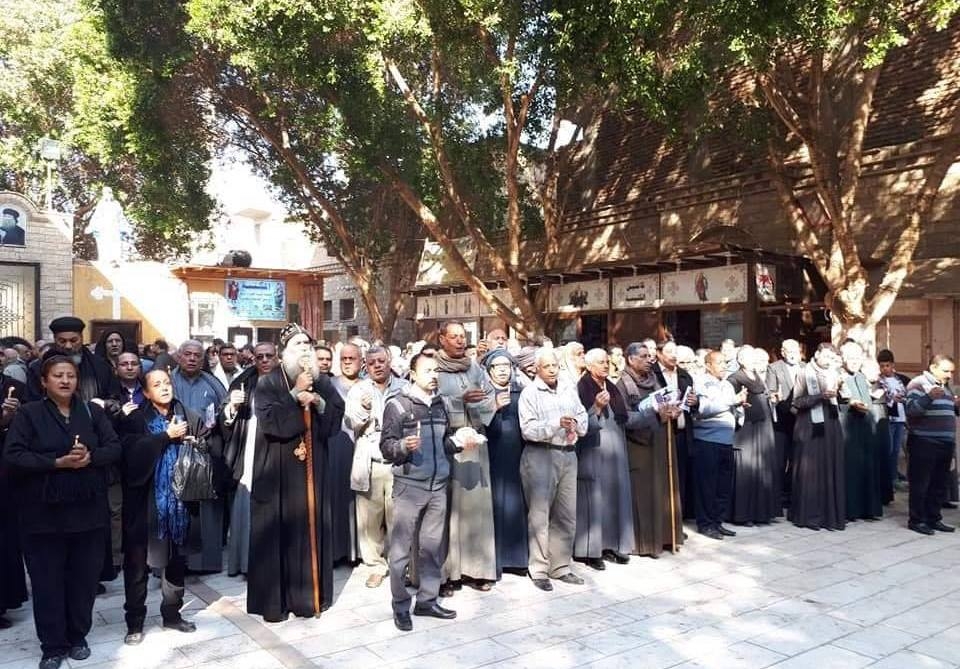
MINYA, Egypt - In front of the house of Emad Sadiq, hundreds of mourners gathered on the way to the Coptic cemetery. The screams of women could be heard a kilometre away, while the lines of men extended round the block.
"Each year they do this to us. Where are you God? I wish they would suffer like we are,” the widow of Emad Sadiq and mother of David said.
On 12 December, in the latest attack in the town of Minya south of Cairo, a focus for sectarian mobs targeting Egypt's Christian community, Emad, 50, and his son David, 21, were shot dead by a lower ranking police officer who was guarding the Church of Nahdet al-Qadasa, which had days earlier tightened the security presence and decorated the entrance with colourful banners.
A leaked CCTV shows the police officer getting in an argument with both men, before shooting them with his machine gun. According to the medical report published by Minya’s top health inspector, Hani Shehata, the two victims were shot in the head.
An eyewitness told Middle East Eye that Emad and David were working late in a construction site, and went to talk with the officer.
New MEE newsletter: Jerusalem Dispatch
Sign up to get the latest insights and analysis on Israel-Palestine, alongside Turkey Unpacked and other MEE newsletters
“Their voice started to get louder, and the officer showered them with bullets,” he said. The officer was arrested and was ordered by the prosecution to be detained for four days pending investigation.
Should we go? We are humans like all people. They won't be happy until our blood is shed on the streets
- Traiz, mourner
A day after the killing, around 2,500 people gathered in front of the victims’ house, while around 200 members of the riot police roamed the area, and surrounded the home village of the victims until the
funeral was over.
“We have had enough,” Ghattas Said, one of the mourners told Middle East Eye.
“I am asking the officials and those responsible for ruling the country: Where is justice? Where is mercy? Are they guarding us or killing us?”
The tragedy that rocked Minya's community comes a month after an attack on buses that were returning from the St Samuel the Confessor monastery, killing seven.
Inside the small church, the widowed mother collapsed in front of the two coffins, as screaming overwhelmed the scene. Quietly standing away from the coffins, attempting to calm mourners, stood Anba Makarios, a Minya bishop.
He said that the killings were "more dangerous than the monastery attack as the perpetrator was one of the police officers who is supposedly assigned to guard the church.
“What is sadder is that it was difficult for us to even hold prayers for the funeral. Minya needs the intervention of the president,” the bishop said diplomatically.
However, other mourners were not so calm in showing their grief.
“Our houses are burned in broad daylight. Our people were displaced. And our businesses are ripped off,” said Traiz, a 69-year-old.
“Should we go? We are humans like all people. They won't be happy until our blood is shed on the streets.”
'We are not animals'
The pessimism among the Coptic community has also reached the youth, who held a short protest at the same time as the funeral, demanding retribution for the victims. One of them was Abanoub Samir.
“Blood has filled the streets. Minya has become like Afghanistan. Maybe we should call it Minya-stan. Nothing is sacred for them. Neither the cathedral, our big homes, or our small private residencies,” Samir said.
“We are not animals. Even if we are animals, the government and the terrorists would not have treated us like this, we are humans just like you,” he said, adding that such incidents will only fuel more sectarianism as the officer who fired the shots was a Muslim.
“What I fear is the reprisal of the police, since now one of their own will be in jail. I don’t really trust they will guard the churches well. Plus, when the media and the attention are gone, they will start arresting those who protested and showed their anger,” said Nehal Mounir, another young woman.
When the strike comes from the guard it is treason…the officer used his official weapon, which you, me, and those who are killed, pay taxes for
- Bishop Bimen
The Ministry of Interior has not issued a statement to comment on the incident. A relative of the victims, who spoke on condition of anonymity, said that a small delegation from the Minya Security Directorate visited the family and attempted to convince them of settling and saying that the killing was due to a personal dispute.
However, following the crowded funeral, which was covered by very few media outlets, the public prosecution published a statement to say the killing took place "after an argument that started days ago”.
In Qena and Minya, worshippers on Sunday held a mass to commemorate Emad and his son. Egypt’s media ignored the incident and the majority of talk show programmes made sure to highlight that the two sides had a fight prior to the killings taking place.
Egypt's Coptic Pope Tawadros II described the killings as “painful and strange” on a televised interview, adding that he expects “strong, fast, and decisive decisions to take place to absorb the tension and anger in Minya”.
Bimen, Bishop of Naqadah Qena, told the Coptic Channel MESat, that the state should work on preventing such incidents before they take place.
“When the strike comes from the guard it is treason…the officer used his official weapon which you, me, and those who are killed, pay taxes for.”
Middle East Eye delivers independent and unrivalled coverage and analysis of the Middle East, North Africa and beyond. To learn more about republishing this content and the associated fees, please fill out this form. More about MEE can be found here.


